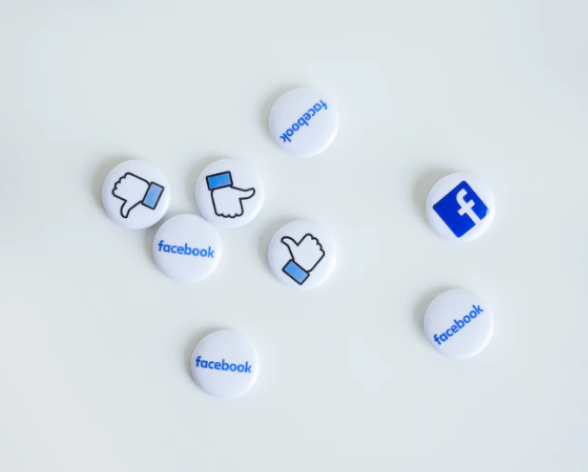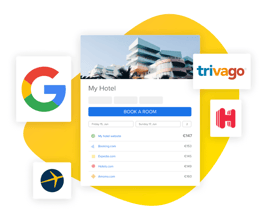The New Year is just around the corner, which means you’ve probably started working on your digital marketing plan for 2020. If you haven’t – chop chop! Digital marketing is absolutely vital for maximising bookings and increasing your revenue. But in order for it to be successful, you have to have a plan that’s tied together with goals and tactics that will help you reach those goals.
But where do you even start?
We’ve pulled together some of the hottest trends set to drop in the hotel digital marketing world over the next year!

Customer Experience Marketing
Hotels are (and, more importantly, have to be) more customer-centric than ever before. This is partly because travellers are the savviest they’ve ever been and expect a certain standard from the hotels they book with, but also because there are so many options out there that one slip-up can send a potential guest running to the nearest competitor.
As a result, creating an enjoyable experience is absolutely vital – hence the rise in customer experience marketing!
This is essentially the idea that customers pay for experiences, not “things”. The key is to promote the reasons people stay in hotels in the first place, and can cover activities like offering unique features in hotel rooms and providing premium facilities.
An example of this in action is the rise in hotel “smart rooms”, which are powered through a range of new-age technologies, like voice recognition and artificial intelligence (AI). They serve to boost the customer experience by giving guests control over their hotel rooms so they can create an environment that suits their individual needs.
Artificial Intelligence
AI has seeped into pretty much every industry over the last couple of years, and the hotel sector is no different.
In 2020, we’ll see far more hotels integrating AI-powered technology into their guest experiences. For example, chatbots that answer in-the-moment queries and objections, and segmenting customers to create personalised experiences, both before the guest arrives and during their stay. It’s a long stretch, but we might even see customer service robots popping up in hotels in the not-too-distant future!
Virtual Reality
Travelling is all about the experience. In fact, some might say it’s the ultimate experience. Which is why getting a real feel for the place is vital for guests before they book. They want to know what it’ll be like on the ground there. This has been tackled in the past by images, then videos, and then, more recently, 360 degree videos.
Over the next 12 months, we’ll see this expanding into the realms of virtual reality (VR), too. We’ll start seeing more and more hotels using VR technology to provide almost-lifelike tours of their hotels or to show off location-specific travel experiences. This will not only give guests the chance to really envision themselves at a hotel, but it will provide richer storytelling, where each and every guest is put at the centre of their own narrative.
User Generated Content
93% of consumers say user generated content (UGC) – content created by past customers – is helpful when making purchasing decisions! This is because it works as a modern form of word-of-mouth marketing, which is still one of the most efficient forms of marketing. Savvy consumers of today are far more likely to listen and believe the images and words of their fellow travellers than the well-polished marketing campaigns dreamed up by hotels!
We’re already seeing a lot of hotels incorporating this tactic into their marketing arsenal, but 2020 will bring a lot more of this. We’ll see the majority of hotels collecting and publishing content created by past guests to provide a peer-endorsed campaign for future prospects.
Mobile Booking
More travellers than ever are booking their hotel stays via mobile, and this number is set to soar in 2020! One study found that 42% of people around the world have booked a hotel stay on a mobile device, while a whopping 70% of last-minute hotel bookings are made via mobile. Our own most recent data trends report for Q3 of 2019 showed, for the first time, mobile revenue exceeding desktop revenue!
This is a huge incentive for hotels to improve and promote their mobile booking systems into 2020 and beyond, and we would encourage our clients to place a real emphasis on mobile! The mobile trend will also encourage hotels to carry out proximity marketing, geo-based ads, and time-sensitive in-app notifications. More specifically (and something that’s already becoming huge), we’ll start to see more hotels with their own personal apps.
Influencer Marketing
A number of hotels have already started partnering up with industry influencers to promote themselves. The motivation behind this is similar to the motivation behind UGC – namely that consumers trust the opinions and words of their peers and people they trust (like influencers) more than brands.
Not only will we see hotels collaborating more with macro-influencers (like celebrities) in 2020, but we’ll also see more going really focused and partnering up with micro-influencers. These are social media users that have modest, but very niche, followings.
Creative and Human Storytelling
Consumers today want to build more of a connection with the brands they buy from, and social media is tapping into this trend by producing more and more features that allow brands to show their “real-ness”.
2020 will see more hotels than ever using features like Instagram Stories to share the human side of their business with potential guests and to solidify deeper relationships.
Moment Marketing
There are multiple different moments to interact with travellers during the hotel booking process. For example, there’s the search stage, where they’re looking for somewhere to stay, the post-booking stage when they’re on the hunt for things to do when they’re in a destination, and the on-arrival moment, where they’re looking to make the most of their stay.
In 2020, it will be vital for hotel marketers to connect with their guests at all stages of the journey in different ways! Learning how to interact with prospects in real-time and with the right information will be absolutely pivotal.
Booking Retargeting
Our research has shown that the majority of people who visit a hotel website won’t book the first time they land there, but they might book on their second, third, or seventh visit!
Whilst we have already been tackling this issue for years, hotels will need to invest more time and budget to re-engage with these potential bookers, and even look into personalisation, in order to reclaim their attention. This includes incorporating marketing activities (like paid search ads for example) targeted towards travellers that have abandoned a booking page and on-screen prompts!
It’s All About Direct Bookings in 2020!
2020 is the year of the direct booking.
Travellers are beginning to realise they can get better deals by booking directly with a hotel, and they are able to take back power from the OTAs to create their own, personal travel experiences. This will be reflected in the digital marketing trends we’ll see sweeping through the hotel industry over the next year. The biggest thing to remember is that it’s important to find strategies that work for your hotel and your guests.
Give us a shout for more – when it comes to direct bookings, we can make you and your property thrive in 2020!




